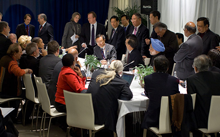
Building Trust in AI through Justice


Array
(
[thumbnail] => https://s42831.pcdn.co/wp-content/uploads/2022/09/hero-placeholder-150x150.png
[thumbnail-width] => 150
[thumbnail-height] => 150
[medium] => https://s42831.pcdn.co/wp-content/uploads/2022/09/hero-placeholder-300x129.png
[medium-width] => 300
[medium-height] => 129
[medium_large] => https://s42831.pcdn.co/wp-content/uploads/2022/09/hero-placeholder-768x329.png
[medium_large-width] => 768
[medium_large-height] => 329
[large] => https://s42831.pcdn.co/wp-content/uploads/2022/09/hero-placeholder-1024x439.png
[large-width] => 1024
[large-height] => 439
[1536x1536] => https://s42831.pcdn.co/wp-content/uploads/2022/09/hero-placeholder.png
[1536x1536-width] => 1400
[1536x1536-height] => 600
[2048x2048] => https://s42831.pcdn.co/wp-content/uploads/2022/09/hero-placeholder.png
[2048x2048-width] => 1400
[2048x2048-height] => 600
[gform-image-choice-sm] => https://s42831.pcdn.co/wp-content/uploads/2022/09/hero-placeholder.png
[gform-image-choice-sm-width] => 300
[gform-image-choice-sm-height] => 129
[gform-image-choice-md] => https://s42831.pcdn.co/wp-content/uploads/2022/09/hero-placeholder.png
[gform-image-choice-md-width] => 400
[gform-image-choice-md-height] => 171
[gform-image-choice-lg] => https://s42831.pcdn.co/wp-content/uploads/2022/09/hero-placeholder.png
[gform-image-choice-lg-width] => 600
[gform-image-choice-lg-height] => 257
)

At the sixth session of Open Working Group (OWG) on Sustainable Development Goals, concern over issues of differentiation and graduation from low income to middle income status and how said graduation affects middle income countries (MICs) was a dominant theme. The World Bank classifies MICs according to their per capita income. (The UN system does not have an independent definition.) It is evident that MICs are concerned that monitoring GDP does not accurately reflect the economic development of countries. Countries that have a per capita income of $1,036 and above are considered to have “graduated” from least developed country status. These countries are no longer eligible for low-income preferential trade deals and concessional loans. For some MICs, income-based graduation hides continued economic and social challenges and excludes countries from receiving aid and access to finance and trade deals. MICs, despite their classification, remain vulnerable to increased levels of inequality and being caught in the “middle-income trap,” in which they are unable to compete with advanced economies in high-skill innovations and lose competitiveness to low-income countries. While some MICs are keen that the special needs of their group are not overlooked in the post-2015 discussions, others do not want special differentiation because they are concerned with a potential fragmentation of developing countries. Despite different opinions on whether or not MICs should be differentiated, there was a consensus in the discussions that “the current classification methodology based on income is incomplete.”
However, if MICs are to be differentiated then what are the interests and the position of this critical constituency in the post-2015 negotiations? The answer to this question remains unclear largely because the priorities and challenges faced by MICs are very different. MICs are not a homogeneous group. They vary in population, geographic, economic size, and income levels. However, common principles and interests have been highlighted by the group. These include common but differentiated responsibilities, national sovereignty, technology transfer, and the adoption of more sustainable consumption and production patterns. As my colleague Alex Evans has pointed out, “these do not always translate into concrete ‘asks’.” For an agenda that aspires to be universal, MICs’ interests will have to be taken into consideration because they are the majority.
That said, what is clear for this group of countries is that gains achieved are not irreversible and must be protected. Middle income countries may be better income-wise but structural challenges remain that hinder social mobility and exacerbate inequality resulting in economic insecurity. The OWG co-chairs’ final remarks emphasized inequality as a “prominent (MICs) concern which hampers efforts at poverty eradication.” In order to protect the gains achieved and to spur economic growth and avoid the “middle income trap,” these countries will need to have access to finance beyond official development assistance (ODA). Furthering north-south and south-south cooperation to enable knowledge sharing and promote investments in key areas that will encourage decent employment and economic competitiveness such as infrastructure and innovation is also necessary. With ODA on the decline, new partners will have to be engaged and financial instruments developed to complement domestic resource mobilization efforts. The post-2015 agenda will be irrelevant for MICS if it fails to promote global partnerships. Clearly, whether it is economic transformation, addressing technology gap, or finance for development, MICs have a lot at stake in the post-2015 discussions.
So, should MICs be differentiated as a special group? If so, what methodology should be used to classify MICs? Does “graduation” help or hinder MICs development? Those are all critical and valid questions to be answered. However, if MICs want to secure tangible gains from post-2015 negotiations they will need to define a clear set of “asks” and put proposals on the table. This heterogeneous group will also have to decide if they want to influence the process as a special group or not. For outside observers doubts remain whether “middle income countries actually want global solutions to global problems.” MICs will either favor multilateral cooperation or eschew it. If the former happens, then a clear position from MICs could have an enormous influence in setting the global partnerships agenda and be a decisive “swing vote,” serving as a bridge between developed countries and least developed countries. With all the issues now on the table, going forward the OWG needs to find ways to address emerging uncertainties and broker negotiations on global partnerships. Engaging MICs may be challenging, but it is necessary. Without MICs the post-2015 framework may evolve into many things; a universal agenda is not one of them.
Publication Date:
Dec 18, 2013
Author(s):
Alejandra Kubitschek Bujones
Topic(s):
Post 2015 Development
Program(s):
Pathfinders for Peaceful, Just and Inclusive Societies


Subscribe to our newsletter and receive regular updates on our latest events, analysis, and resources.
"*" indicates required fields